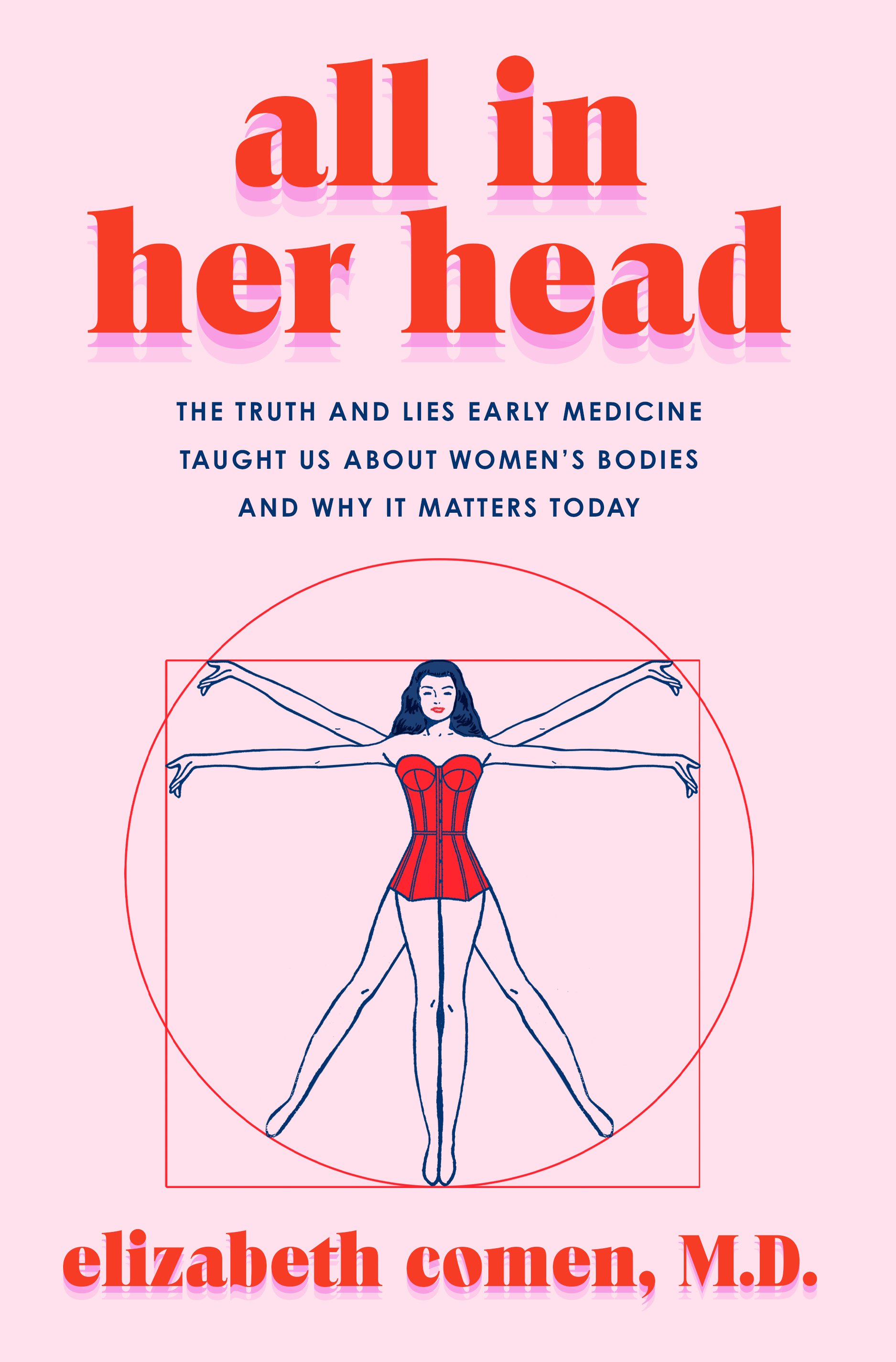
All in Her Head: The Truth and Lies Early Medicine Taught Us About Women's Bodies and Why It Matters Today
Elizabeth Comen
Publisher
Harper Wave
Publication Date
2/13/2024
ISBN
9780063293014
Pages
368
About the Author

Elizabeth Comen
Questions & Answers
Historically, the medical narrative, often shaped by male physicians, has significantly impacted the understanding and treatment of women's health and bodies. This narrative has been characterized by biases, misunderstandings, and a lack of consideration for women's experiences. Male physicians have often viewed women's bodies as inherently flawed, focusing on reproductive functions over overall health. This has led to misdiagnoses, inappropriate treatments, and a general disregard for women's experiences and needs. For example, the concept of "hysteria" was used to dismiss women's complaints, and treatments like clitoridectomy were performed without informed consent. Additionally, the focus on women's appearance over health has led to unnecessary cosmetic surgeries and treatments. Despite advancements, these historical biases still influence modern medicine, affecting everything from diagnostic tools to treatment plans.
The consequences of medicalized body shaming and the pathologization of women's bodies and experiences throughout history are profound and enduring. This approach has led to:
-
Disempowerment: Women have been stripped of agency over their own bodies, leading to a culture of self-doubt and shame, particularly around reproductive and sexual health.
-
Misdiagnosis and Lack of Treatment: Pathologizing normal bodily functions has resulted in misdiagnosis and inadequate treatment, as seen in cases of constipation, menstrual issues, and urinary problems.
-
Marginalization of Women's Health: Women's health issues have been underfunded and under-researched, leading to gaps in knowledge and treatment.
-
Patriarchal Control: The medicalization of women's bodies has been used as a tool for patriarchal control, as seen in the history of corseting and the Tuskegee syphilis study.
-
Continued Stigma: Despite advancements, the legacy of body shaming and pathologization persists, affecting women's mental health and self-image.
-
Limited Healthcare Access: Women often face barriers in accessing healthcare due to historical biases and the perception that their concerns are not valid.
This legacy continues to impact women's health and well-being today, highlighting the need for a more inclusive and empathetic approach to medicine.
Gender biases have significantly influenced medical research and treatment development for women's health conditions. Historically, women were underrepresented in clinical trials, leading to a lack of understanding of how treatments affect female bodies differently from male ones. This has resulted in under-researched and misdiagnosed conditions, such as heart disease, autoimmune disorders, and urinary issues.
Medical literature has often attributed women's health problems to psychological factors, overlooking physiological causes. For example, the concept of "hysteria" was used to dismiss women's symptoms, and the idea that women's bodies are inherently weaker has led to less aggressive treatment for conditions like heart disease. Additionally, biases in medical education and practice have resulted in women receiving less empathy and attention from healthcare providers, further exacerbating health disparities.
However, recent efforts to address these biases have led to increased awareness and research into women's health, with a growing emphasis on gender parity in clinical trials and a more holistic approach to patient care.
Women's voices and experiences are pivotal in challenging and reshaping the medical narrative surrounding women's health. By sharing their personal stories and experiences, women expose biases and gaps in medical research and treatment. This collective voice has led to increased awareness of conditions specific to women, such as endometriosis and ovarian cancer, and highlighted the importance of considering gender differences in medical research. Women's advocacy has also pushed for more inclusive medical education, ensuring that future doctors are better equipped to understand and treat women's health issues. Furthermore, social media platforms have enabled women to connect, share information, and mobilize for change, fostering a more informed and empowered patient community.
To create a more inclusive and effective healthcare system for women, several changes are necessary:
- Gender-Specific Research: Include women in clinical trials and research, considering sex as a biological variable to understand how treatments affect women differently.
- Education and Training: Enhance medical education on women's health, focusing on unique conditions and anatomical differences.
- Patient-Centered Care: Encourage doctors to listen to women's experiences and concerns, fostering trust and open communication.
- Specialized Care: Develop specialized programs for women's health, including endocrinology, urology, and sports medicine, tailored to women's needs.
- Addressing Stigma: Challenge and eliminate stigma surrounding women's health issues, such as reproductive and urinary problems.
- Inclusive Policies: Implement policies that support women's health, including paid parental leave and flexible work hours.
- Diverse Workforce: Increase the number of female doctors and medical professionals to provide more empathetic and informed care.